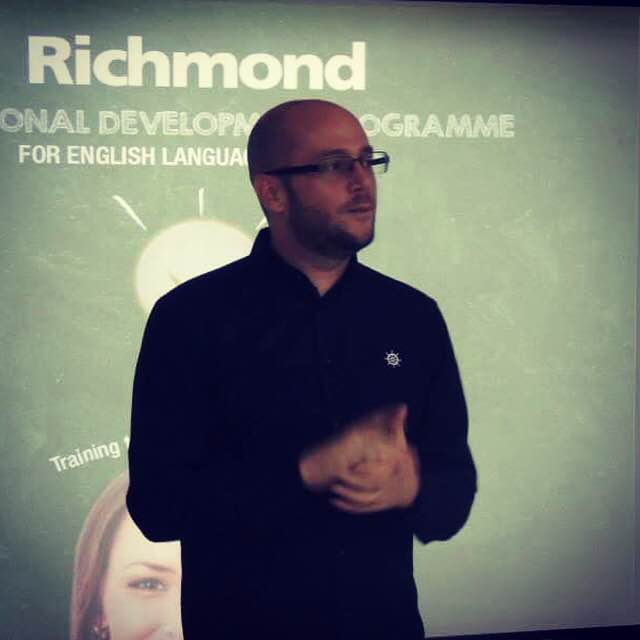Truly PUNishing
English teacher, ‘How are you feeling today?’
Student, ‘Tense’
English teacher, ‘How were you feeling yesterday? How will you have been feeling by the end of the week? How have you been feeling this month?’
Did you groan? I hope so, because that makes two of us. I certainly let out an audible ‘oh…’ when I heard that joke, and I wasn’t alone in doing so at the time.
But that’s the thing about puns – they never cease to make people groan, but why then are they so common?
Growing up in the UK puns have been a part of my life from an early age. From the yuletide tradition of wearing a ‘funny’ hat while opening a Christmas cracker, and reading aloud the ‘joke’ therein (What is Santa’s favourite pizza? One that’s deep pan, crisp and even …) to wandering out to the shops (‘Agatha Crustie’ bakery, ‘The Codfather’ fish shop, ‘Thai Tanic’ restaurant, etc, etc) to buying a newspaper and seeing the headlines (‘World Chomp’ after Mike Tyson infamously bit his opponent’s ear, while in the sports pages ‘From Russia with Gloves’ announcing the fact that a Russian goalkeeper had saved a Chelsea penalty).
But what are puns? They’re a huge area. Some argue that the word ‘pun’ derives from the Italian ‘puntiglio’ (which has further Latin origins), meaning ‘a fine point’, and is the source of the English word ‘punctilious’. Others disagree. The truth is, no-one really knows where the word comes from. What we can be certain of, however, is that we recognise them when we see them, whether we like it or not.
The main two types are homophonic puns, which make use of homophones, or words which sound the same but have different spellings (Why do Marxists drink camomile tea? Because proper tea is theft), and homographic puns, which uses words which are spelled the same (and often sound the same), such as when my friend mocked my apartment, so I knocked her flat. There are also, however, heteronymic puns, which use the same spelling, but different pronunciation (Husband and wife, rowing for England) and compound puns, which contain more than one pun (Your son’s bright). But you could go as far as to include antanaclasis (If you don’t get it, you don’t get it), spoonerisms (belly jeans), oxymorons (a deafening silence), palindromes (race car), eggcorns (mating name/maiden name), pangrams (The quick brown fox jumps over the lazy dog), polyptotons (Absolute power corrupts absolutely), alliterations (Peter piper picked a peck of pickled peppers), and even forms of irony (a good definition of which, by the way, can be seen in Alanis Morrisette’s song ‘Isn’t it ironic?’ in which she ironically gave many examples of irony, none of which were actually ironic, which in itself is quite ironic).
So why am I banging on about puns then, if they’re so groanworthy, and obviously not funny? It has been said that ‘puns are the lowest form of wit’, which was obviously said by someone who hadn’t read Shakespeare, who used hundreds of the things. I tend to disagree. Even though I often reel at the Sun newspaper, it’s more often than not because of it’s content, and not because of the clever word play which they use in their headlines.
But more than that, puns have a useful social function. Richard Wiseman, Professor of the Public Understanding of Psychology at the University of Hertforshire, UK, carried out an enormous study in order to find the ‘world’s funniest joke’. Not surprisingly, he discovered that the jokes found in Christmas crackers are some of the worst jokes out there. So why do we continue to read them out at the dinner table then, year after year, if they’re so bad? The answer lies in the fact that when we’re all groaning, we’re all doing it together. If the jokes were funny, then they would run the risk of being told badly, and making people feel uncomfortable. When we know a joke is going to be bad, we don’t have to try to be funny, and the ensuing ‘oh…’ is a communal one. Therefore bad jokes and puns bring us together. There’s something about my innate British admiration for failure which this idea appeals to. Take football for instance, British supporters love the underdog. No-one likes a Man Utd fan (apart from Man Utd fans, of course). Whether this is born out of necessity is not clear, but it’s certainly true. In fact, Guy Cook makes a very interesting analogy between ball games and language in play in his book Language Play, Language Learning (OUP, 2000), and their shared basis of both collaboration and competition.
So where does this leave the language teacher? Well whether you love them or hate them (and in doing so collaborate in your loathing), you can’t deny that playful language of this kind provides ample opportunities for language learners. We have pronunciation work in homophonic/homographic language, ‘fine points’ (to return to the Italians) of meaning, and empowering manipulation of language. A very interesting article on the application of humurous language to second language learning can be found in https://www2.hawaii.edu/~bergen/papers/binsted.pdf.
I’ll leave you with a poem I read recently (I’m afraid I don’t know the author, but please let me know if you do). What opportunities for language learning/play/practice can you find in this?
The Hungry Little Giant
“I’m hungry! I could swallow Wales!”
the little giant cried.
“Tonight we’re having Chile, dear,”
the giant’s mother sighed.
“Can I please have Samoa, Mom?”
the little giant asked her.
“Just don’t forget dessert,” she said.
“We’re having Baked Alaska.”
“Tomorrow we’ll eat Turkey,
there is truly nothing finer.
We’ll cook it in the oven and
we’ll serve it up on China.”






